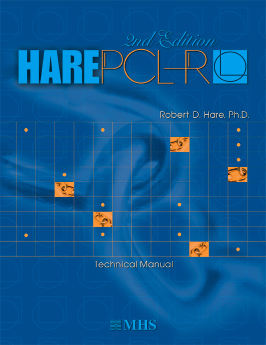A chief executive officer (CEO) is the highest officer charged with the management of an organization – especially a company or nonprofit institution.

Roald Dahl was a British author of popular children's literature and short stories, a poet, screenwriter and a wartime fighter ace. His books have sold more than 300 million copies worldwide. Dahl has been called "one of the greatest storytellers for children of the 20th century".

Remorse is a distressing emotion experienced by an individual who regrets actions which they have done in the past that they deem to be shameful, hurtful, or wrong. Remorse is closely allied to guilt and self-directed resentment. When a person regrets an earlier action or failure to act, it may be because of remorse or in response to various other consequences, including being punished for the act or omission. People may express remorse through apologies, trying to repair the damage they've caused, or self-imposed punishments.

Jon Ronson is a British-American journalist, author, and filmmaker. He is known for works such as Them: Adventures with Extremists (2001), The Men Who Stare at Goats (2004), and The Psychopath Test (2011).

A social skill is any competence facilitating interaction and communication with others where social rules and relations are created, communicated, and changed in verbal and nonverbal ways. The process of learning these skills is called socialization. Lack of such skills can cause social awkwardness.
Steven Billy Mitchell, usually known by the pseudonym and pen-name of Andy McNab, is a novelist and former Special Air Service soldier.

Steven Berlin Johnson is an American popular science author and media theorist.

Gordon Gekko is a composite character in the 1987 film Wall Street and its 2010 sequel Wall Street: Money Never Sleeps, both directed by Oliver Stone. Gekko was portrayed in both films by actor Michael Douglas, who won the Academy Award for Best Actor for his performance in the first film. In 2003, the American Film Institute named Gordon Gekko No. 24 on its Top 50 movie villains of all time.
Robert D. Hare is a Canadian forensic psychologist, known for his research in the field of criminal psychology. He is a professor emeritus of the University of British Columbia where he specializes in psychopathology and psychophysiology.

Dame Hilary Mary Mantel was a British writer whose work includes historical fiction, personal memoirs and short stories. Her first published novel, Every Day Is Mother's Day, was released in 1985. She went on to write 12 novels, two collections of short stories, a personal memoir, and numerous articles and opinion pieces.
Psychopathy, or psychopathic personality is a personality construct characterized by impaired empathy and remorse, persistent antisocial behavior, and bold, disinhibited, and egocentric traits masked by superficial charm and the outward presence of apparent normality. Different conceptions of psychopathy have been used throughout history that are only partly overlapping and may sometimes be contradictory.

The Psychopathy Checklist or Hare Psychopathy Checklist-Revised, now the Psychopathy Checklist—revised (PCL-R), is a psychological assessment tool that is commonly used to assess the presence and extent of the personality trait psychopathy in individuals—most often those institutionalized in the criminal justice system—and to differentiate those high in this trait from those with antisocial personality disorder, a related diagnosable disorder. It is a 20-item inventory of perceived personality traits and recorded behaviors, intended to be completed on the basis of a semi-structured interview along with a review of "collateral information" such as official records. The psychopath tends to display a constellation or combination of high narcissistic, borderline, and antisocial personality disorder traits, which includes superficial charm, charisma/attractiveness, sexual seductiveness and promiscuity, affective instability, suicidality, lack of empathy, feelings of emptiness, self-harm, and splitting. In addition, sadistic and paranoid traits are usually also present.
Fictional portrayals of psychopaths, or sociopaths, are some of the most notorious in film and literature but may only vaguely or partly relate to the concept of psychopathy, which is itself used with varying definitions by mental health professionals, criminologists and others. The character may be identified as a diagnosed/assessed psychopath or sociopath within the fictional work itself, or by its creator when discussing their intentions with the work, which might be distinguished from opinions of audiences or critics based only on a character appearing to show traits or behaviors associated with an undefined popular stereotype of psychopathy.
Prosocial behavior, or intent to benefit others, is a social behavior that "benefit[s] other people or society as a whole", "such as helping, sharing, donating, co-operating, and volunteering". Obeying the rules and conforming to socially accepted behaviors are also regarded as prosocial behaviors. These actions may be motivated by empathy and by concern about the welfare and rights of others, as well as for egoistic or practical concerns, such as one's social status or reputation, hope for direct or indirect reciprocity, or adherence to one's perceived system of fairness. It may also be motivated by altruism, though the existence of pure altruism is somewhat disputed, and some have argued that this falls into philosophical rather than psychological realm of debate. Evidence suggests that pro sociality is central to the well-being of social groups across a range of scales, including schools. Prosocial behavior in the classroom can have a significant impact on a student's motivation for learning and contributions to the classroom and larger community. In the workplace, prosocial behaviour can have a significant impact on team psychological safety, as well as positive indirect effects on employee's helping behaviors and task performance. Empathy is a strong motive in eliciting prosocial behavior, and has deep evolutionary roots.

Yann Martel, is a Canadian author who wrote the Man Booker Prize–winning novel Life of Pi, an international bestseller published in more than 50 territories. It has sold more than 12 million copies worldwide and spent more than a year on the bestseller lists of the New York Times and The Globe and Mail, among many other best-selling lists. Life of Pi was adapted for a movie directed by Ang Lee, garnering four Oscars including Best Director and winning the Golden Globe Award for Best Original Score.
The Psychopathic Personality Inventory (PPI-Revised) is a personality test for traits associated with psychopathy in adults. The PPI was developed by Scott Lilienfeld and Brian Andrews to assess these traits in non-criminal populations, though it is still used in clinical populations as well. In contrast to other psychopathy measures, such as the Hare Psychopathy Checklist (PCL), the PPI is a self-report scale, rather than interview-based, assessment. It is intended to comprehensively index psychopathic personality traits without assuming particular links to anti-social or criminal behaviors. It also includes measures to detect impression management or careless responding.

Roxanne Jacenko is an Australian businesswoman and socialite who was one of the runners up on the third season of The Celebrity Apprentice Australia.
While psychopaths typically represent a very small percentage of workplace staff, the presence of psychopathy in the workplace, especially within senior management, can do enormous damage. Indeed, psychopaths are usually most present at higher levels of corporate structure, and their actions often cause a ripple effect throughout an organization, setting the tone for an entire corporate culture. Examples of detrimental effects include increased bullying, conflict, stress, staff turnover, absenteeism, and reduction in both productivity and social responsibility. Ethical standards of entire organisations can be badly damaged if a corporate psychopath is in charge. A 2017 UK study found that companies with leaders who show "psychopathic characteristics" destroy shareholder value, tending to have poor future returns on equity.

Imachibundu Oluwadara Onuzo is a Nigerian novelist. Her first novel, The Spider King's Daughter, won a Betty Trask Award, was shortlisted for the Dylan Thomas Prize and the Commonwealth Book Prize, and was longlisted for the Desmond Elliott Prize and the Etisalat Prize for Literature.
Abigail Marsh is a psychologist and neuroscientist who works as a professor at Georgetown University's Department of Psychology and the Interdisciplinary Neuroscience Program, where she is the director of the Laboratory on Social and Affective Neuroscience.











